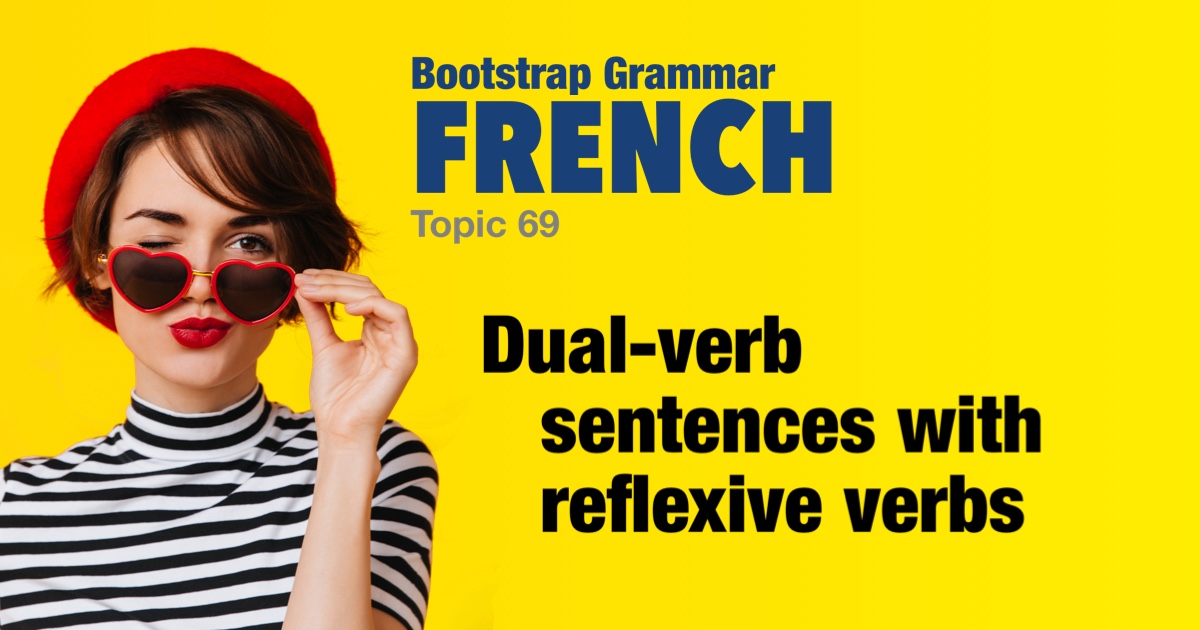French grammar - Dual-verb sentences with reflexive verbs |
|||
|
|||
When a reflexive verb is used in the infinitive after another verb, the reflexive pronoun should agree with the subject of the sentence. |
| Examples: | |
|
Est-ce que je peux m'allonger un peu ?
Can I lay down a bit?
|
|
|
Bien sûr, tu peux t'allonger un peu si tu le souhaites.
Of course, you (familiar) can lie down a bit if you want.
|
|
|
Ils veulent se marier cet été.
They want to get married this summer.
|
|
|
Je n'aime pas me lever tôt.
I don't like getting up early.
|
|
|
Il n'aime pas se lever tôt.
He doesn't like to get up early.
|
|
|
Elle veut se brosser les cheveux.
She wants to brush her horses.
|
|
|
Il aime se vanter beaucoup tout le temps.
He likes to brag a lot all the time.
|
|
|
Comment pouvons-nous nous sauver de ce cauchemar ?
How can we save ourselves from this nightmare?
|
|
|
Les enfants, pouvez-vous aller vous amuser et ne pas me déranger ?
Children - can you (plural) amuse yourselves and not bother me?
|
|
|
Ils veulent s'excuser pour leur mauvais comportement.
They want to apologize for their bad behavior.
|
|
|
Pourquoi tu ne veux pas te coucher trop tard ?
Why don't you (familiar) want to go to bed too late?
|
|
|
Nous ne voulons pas nous trouver dans une situation difficile.
We don't want to find ourselves in a difficult situation.
|
|
 |
|




